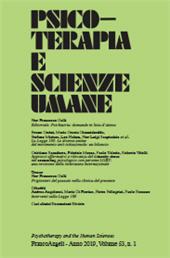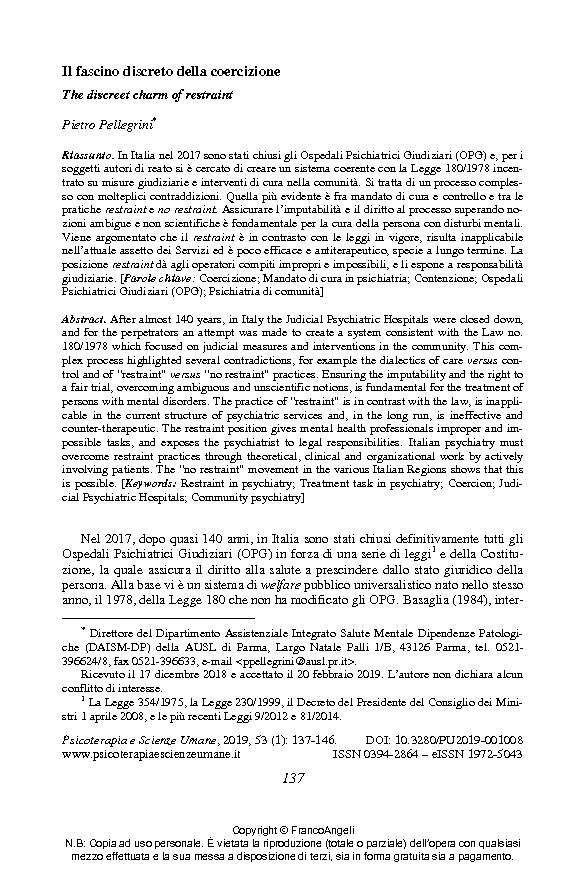Il fascino discreto della coercizione
137-146 p.
In Italia nel 2017 sono stati chiusi gli Ospedali Psichiatrici Giudiziari (OPG) e, per i soggetti autori di reato si è cercato di creare un sistema coerente con la Legge 180/1978 incentrato su misure giudiziarie e interventi di cura nella comunità. Si tratta di un processo complesso con molteplici contraddizioni. Quella più evidente è fra mandato di cura e controllo e tra le pratiche restraint e no restraint. Assicurare l'imputabilità e il diritto al processo superando nozioni ambigue e non scientifiche è fondamentale per la cura della persona con disturbi mentali. Viene argomentato che il restraint è in contrasto con le leggi in vigore, risulta inapplicabile nell'attuale assetto dei Servizi ed è poco efficace e antiterapeutico, specie a lungo termine. La posizione restraint dà agli operatori compiti impropri e impossibili, e li espone a responsabilità giudiziarie. [Testo dell'editore].
After almost 140 years, in Italy the Judicial Psychiatric Hospitals were closed down, and for the perpetrators an attempt was made to create a system consistent with the Law no. 180/1978 which focused on judicial measures and interventions in the community. This complex process highlighted several contradictions, for example the dialectics of care versus control and of "restraint" versus "no restraint" practices. Ensuring the imputability and the right to a fair trial, overcoming ambiguous and unscientific notions, is fundamental for the treatment of persons with mental disorders. The practice of "restraint" is in contrast with the law, is inapplicable in the current structure of psychiatric services and, in the long run, is ineffective and counter-therapeutic. The restraint position gives mental health professionals improper and impossible tasks, and exposes the psychiatrist to legal responsibilities.
Italian psychiatry must overcome restraint practices through theoretical, clinical and organizational work by actively involving patients. The "no restraint" movement in the various Italian Regions shows that this is possible. [Publisher's text].
Is part of
Psicoterapia e scienze umane : LIII, 1, 2019-
Articles from the same issue (available individually)
-
Information
ISSN: 1972-5043
DISCIPLINES
KEYWORDS
- Coercizione, Mandato di cura in psichiatria, Contenzione, Ospedali Psichiatrici Giudiziari (OPG), Psichiatria di comunità
- Restraint in psychiatry, Treatment task in psychiatry, Coercion, Judicial Psychiatric Hospitals, Community psychiatry



